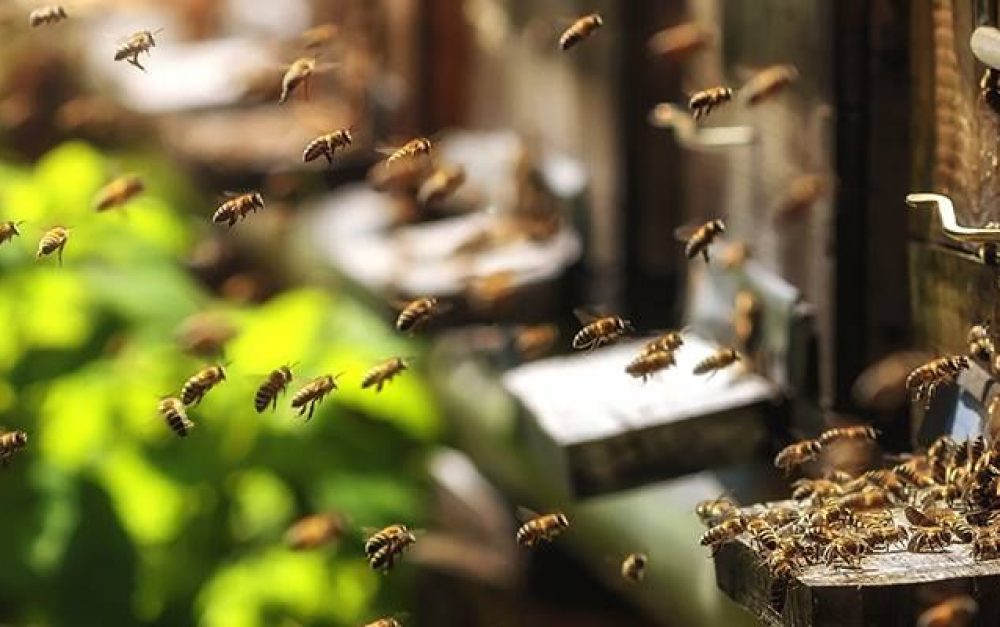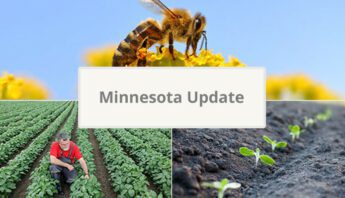Lawmakers terminate widely supported pollinator bills behind closed doors
For immediate release: Thursday, June 6, 2019
Last week, a proposed ban of neonicotinoid pesticides (neonics) in Minnesota’s 1.3 million acres of Wildlife Management Areas (WMAs) was quietly removed from the final bill sent to Governor Walz.
The proposed ban had emerged as a powerful bipartisan compromise for pollinator protection — the language passing through both the House and Senate with strong support from both republicans and democrats. But in the final days of the regular legislative session and the short special session, the language lost all support from the Senate.
Neonicotinoids, or “neonics,” are a class of pesticides that are harmful not only to pollinators, but birds and other wildlife who find refuge in these state lands. The WMA bill was designed to support existing policies of the Department of Natural Resources, which currently does not use neonicotinoid pesticides in Wildlife Management Areas. Proponents of the bill argued that agency policies can change quickly over time, and a state policy would ensure longevity of the practice.
The bill — authored in the House by Fue Lee, (D) Minneapolis, — was incorporated into the “omnibus” Environment and Natural Resources Bill, which passed in the House. And in the Senate, the policy received unanimous support with all 67 senators voting to include the ban in the corresponding Senate environment omnibus bill, albeit with a five-year cap.
However, despite strong bipartisan support the measure fell victim to closed-door discussions in the final days of the session. Without explanation, the language was eliminated from the final Environment and Natural Resources Bill, after the bill emerged from behind-the-scenes conference committee negotiations.
Erin Rupp of Pollinate Minnesota stated:
This session, we saw more legislation introduced to protect pollinators than ever before, and two great things passed — the endangered Rusty Patched Bumble Bee is now Minnesota’s official state bee and the Board of Water and Soil Resources will manage the cost share Lawns to Legumes program for homeowners to increase pollinator habitat. Yet we saw the Senate pull back from critical action that would address pesticide exposures for bees, actions their constituents and the senators themselves supported earlier in session. Pollinators need our elected officials to address all the drivers of their decline and be consistent with their own votes, or change their minds in the daylight.
Willa Childress of Pesticide Action Network stated:
This bill was a practical step to ensure that existing policies to protect pollinators on public lands would not be eroded. And we know that corporate lobbyists opposed this bill throughout the session. When overwhelming support shifts behind closed doors, we have to ask: whose voices are our elected officials prioritizing? The sudden reversal of a bipartisan bill is an example of our democratic process failing in a moment we need it most.
Daniel Raichel of the Natural Resources Defense Council stated:
Minnesota’s Wildlife Management areas are one of the few places left in the state where bees and other pollinators can count on food and shelter free of harmful neonic contamination pervasive elsewhere in the state. Apparently, the initial strong bipartisan support wasn’t enough to overcome last minute back peddling. The resulting failure to make existing neonic protections permanent is a stinging and inexplicable loss for pollinators and other wildlife.
Contact:
Willa Childress, Pesticide Action Network, 612.254.9222
Erin Rupp, Pollinate Minnesota, 612.245.6384
Daniela Arellano, NRDC, 310-434-2304







